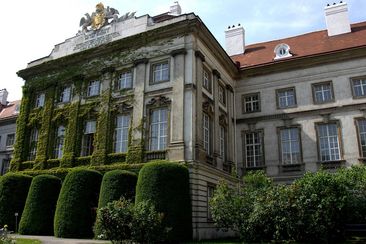
Am 7. September 2016 findet im Josephinum auf Einladung von Christiane Druml, UNESCO Lehrstuhl für Bioethik an der MedUni Wien gemeinsam mit der BOKU und dem Centre de Recherches Médicales de Lambaréné, eine internationale Veranstaltung statt, die der Frage gewidmet ist, inwieweit man mit Techniken wie CRISPR Cas9 Insekten von der Gattung Anopheles so verändern kann, dass sie keine Malaria mehr übertragen können. Welche Folgen könnte dies für den Menschen, aber auch für die Umwelt und das Ökosystem haben? Was sind die ethischen Implikationen ?
Zu den Rednern gehören Vertreter der UNESCO, der WHO und von EDCTP, sowie Wissenschafter wie Francine Ntoumi, die eben erst den Prix Mérieux für ihre Arbeiten erhalten hat, und Nicolai Windbichler, Imperial College London der zu den Autoren der ursprünglichen Publikation zu Anopheles und dem „gene drive“ gehört. Zum Abschluss gibt es eine Diskussion, die von Trish Groves, Editor des British Medical Journals, geleitet wird.
CRISPR/Cas9 is the most efficient new tool for genome editing. It is simple and cost-effective.
There is great hope for curing severe genetic diseases using CRISPR/Cas9. Moreover, there are several ground-breaking practical applications possible such as improved somatic gene therapy, germline modification, and management of disease-bearing insect populations (e.g. mosquitos) in the wild.
While scientists are working to establish technical safety of CRISPR/Cas9 i.e. to minimize or even eliminate off-target effects, we also need to consider the ethical, medical, and legal implications of such interventions.
Since its publication by Jennifer Doudna and Emmanuelle Charpentier in Science 2012, the scientific community has discussed ethical issues, in particular those which affect following generations: Special focus has been given to germline modifications. But there is another application, the modification of insect populations, namely the “gene drive” system targeting female reproduction in the malaria mosquito vector Anopheles gambiae.
As human beings we have a moral duty towards ourselves, but also to conserve and protect the integrity of the ecosystem. This conference is a follow-up meeting of the INSERM Conference in March 2016 in Paris. It is focussed on the influence and the ethical and societal consequences of this potential malaria control tool, on the burden of disease and the environment. Its goal is to develop recommendations for further research in this area.
Program
Registration
Anmeldung bis 26. August 2016 ist notwendig.
For registration & information please contact:
dominika.flomyn@meduniwien.ac.at until 26th August 2016